

PH.D. FACULTY ADVISING

Ph.D. Faculty Advising Catalog
Table of Contents
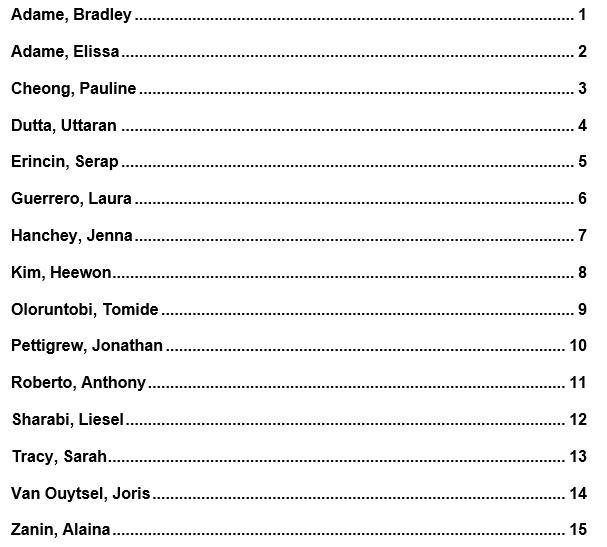

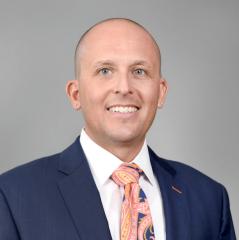

BRADLEY ADAME
11 years with The Hugh Downs School Areas of Expertise: Health Communication, Social Influence, Organizational Communication, Message Design Research Methods: Quantitative, Post-positive qualitative investigations
By what name do you prefer to be addressed by students in the program? By your advisees?
Bradley
Please share a little about your preferred work style. For example, how often do you usually meet with your advisees pre-comps? Post-comps? What are typical goals or expectations you have for advisees who work with you?
I expect advisees to create a theoretically-driven dissertation that extends theory in a meaningful way and solves an applied problem. Meeting frequency is determined at an individual level - some people need more guidance than others. I expect my advisees to be proficient researchers, independent of their post- graduation goals.
What kinds of comprehensive exam formats do you prefer to use (e.g., takehome, in-house, mixed, surprise questions, reading lists ahead of time, questions ahead of time, etc.)?
I expect comprehensive exams to be an exam that tests students' capacity for creativity in theory building and synthesizing information learned throughout their education. While I would not use surprise questions, I don't believe that students should have access to their actual questions until the exam begins.
What are three important qualities for an effective advisor to have?
Knowledge of theory and discipline. ability to meet students at their level and help them achieve their goals. Capacity to cultivate effective and creative researchers.

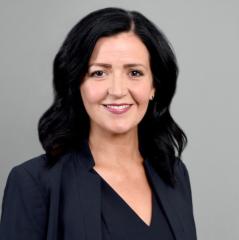

ELISSA ADAME
9 years with The Hugh Downs School Areas of Expertise: Training, Supervisor/Subordinate Relationships, Leadership, Organizational Communication, Feedback Research Methods: Quantitative and qualitative methods
By what name do you prefer to be addressed by students in the program? By your advisees?
Please share a little about your preferred work style. For example, how often do you usually meet with your advisees pre-comps? Post-comps? What are typical goals or expectations you have for advisees who work with you?
I prefer to meet with my students once a week, with goals set weekly, monthly, and annually.
What kinds of comprehensive exam formats do you prefer to use (e.g., takehome, in-house, mixed, surprise questions, reading lists ahead of time, questions ahead of time, etc.)?
What are three important qualities for an effective advisor to have?
Mixed formats of take-home and in-house. Welcome failure; expect growth; and model healthy relationships with self, loved ones, and colleagues.
Is there anything you would like to add?
When looking for an advisor, speak with other students who have completed the program before you. Those insights - while perhaps not completely accurate - can serve as a window into what you might expect. 2
Elissa

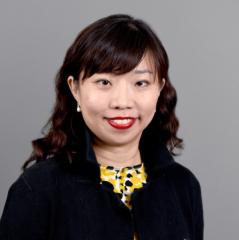

PAULINE CHEONG
16 years with The Hugh Downs School Areas of Expertise:
Communication technologies, culture, globalization, religion & values
Research Methods:
Multimethod, including qualitative, quantitative, & web-based methodologies
By what name do you prefer to be addressed by students in the program? By your advisees?
Prof. Cheong or Dr. Cheong
Please share a little about your preferred work style. For example, how often do you usually meet with your advisees pre-comps? Post-comps? What are typical goals or expectations you have for advisees who work with you?
Personalized goals tailored to each student's interests, experiences & envisioned futures
What kinds of comprehensive exam formats do you prefer to use (e.g., takehome, in-house, mixed, surprise questions, reading lists ahead of time, questions ahead of time, etc.)?
Take-home exam, reading lists confirmed ahead of time, broad discussion of questioning route, exam expectations & scope clarified ahead of time
What are three important qualities for an effective advisor to have?
Knowledgeable, enthusiastic, supportive

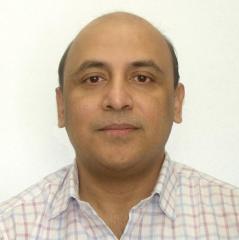
UTTARAN DUTTA

11 years with The Hugh Downs School Areas of Expertise: Communication for Social Change. Intercultural Communication.
Research Methods:
Qualitative Method.
By what name do you prefer to be addressed by students in the program? By your advisees?
Please share a little about your preferred work style. For example, how often do you usually meet with your advisees pre-comps? Post-comps? What are typical goals or expectations you have for advisees who work with you?
Pre-comps: 3-5 times. Post-Comps: 3-5 times. Goals: Helping students develop their strengths, work through challenges, and achieve academic excellence., as well as ensuring that the research environment is safe, equitable, and free from harassment and discrimination. Expectations: Advisees will perform professional practices of the discipline (i.e., publishing, conference presentations, grant-seeking, researching responsibly, etc.).
What kinds of comprehensive exam formats do you prefer to use (e.g., takehome, in-house, mixed, surprise questions, reading lists ahead of time, questions ahead of time, etc.)?
What are three important qualities for an effective advisor to have?
Mixed (take-home, and in-house), reading lists ahead of time, questions ahead of time. Caring, Inspiring, Transparent, Compassionate, Flexible.
Uttaran
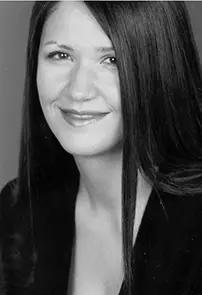


SERAP ERINCIN
2nd year with The Hugh Downs School Areas of Expertise: Performance Studies, Inter/Cultural Studies, Postcolonial studies, Posthuman studies, Gender Studies, social justice, technology, media, ecocriticism, theories, methods, auto/ethnography Research Methods:
Theoretical, critical, ethnographic, interpretive
By what name do you prefer to be addressed by students in the program? By your advisees?
Serap
Please share a little about your preferred work style. For example, how often do you usually meet with your advisees pre-comps? Post-comps? What are typical goals or expectations you have for advisees who work with you?
Weekly check ins. In person, zoom, or email. Structured work, finding flow in the work, long term goals in view while focusing on immediate weekly, monthly, semester long plans
What kinds of comprehensive exam formats do you prefer to use (e.g., takehome, in-house, mixed, surprise questions, reading lists ahead of time, questions ahead of time, etc.)?
Take home. Reading lists ahead of time.
What are three important qualities for an effective advisor to have?
Rigorous, conscientious, empathetic.
Is there anything you would like to add?
Students' well-being matter to me more than any professional goals. I plan ahead of time for you to succeed as a scholar in the field, however, this process is always collaborative and driven by students' wishes and goals.Ultimately, I will support the students' goals, however, I will push students as much as I can to reach for the best scholar they can be. My role is to support and guide students, not discipline or test them. 5

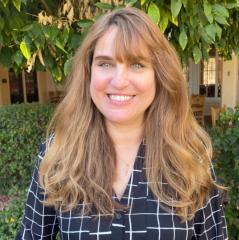
LAURA GUERRERO

27 years with The Hugh Downs School Areas of Expertise:
Interpersonal, relational, nonverbal, and emotional communication
Research Methods:
Questionnaire, experiment, observations; quantitative analysis
By what name do you prefer to be addressed by students in the program? By your advisees?
Laura
Please share a little about your preferred work style. For example, how often do you usually meet with your advisees pre-comps? Post-comps? What are typical goals or expectations you have for advisees who work with you?
This varies based on the needs of the student. My advisees and I talk about what works best for them in terms of process and level of independence.
What kinds of comprehensive exam formats do you prefer to use (e.g., takehome, in-house, mixed, surprise questions, reading lists ahead of time, questions ahead of time, etc.)?
What are three important qualities for an effective advisor to have?
This also varies based on the student. I prefer part of the comps to in some way test knowledge in a student’s area and part of the comps to be more specifically geared toward dissertation preparation. Flexibility, knowledge, empathy



JENNA HANCHEY
2 years with The Hugh Downs School Areas of Expertise:
rhetoric, critical/cultural studies, intercultural communication, critical organizational communication, intersectional approaches to coloniality, race, gender, and sexuality, critical development studies, critical futurisms and futures studies, social theory, fictocriticism, speculative approaches to communication and/or speculative fiction
Research Methods:
rhetorical criticism, rhetorical field methods, participatory critical rhetoric, qualitative methods, fictocriticism and speculative fiction as method, social theory
By what name do you prefer to be addressed by students in the program? By your advisees?
Please share a little about your preferred work style. For example, how often do you usually meet with your advisees pre-comps? Post-comps? What are typical goals or expectations you have for advisees who work with you?
Jenna is fine, but I'm also open to Dr. H or Hanchey if the students are uncomfortable using my first name. I typically co-construct a mentoring plan that makes the student feel most supported. In my previous institution, I held weekly open writing sessions with advisees who were working on their theses, using the time to either simply write in the same place or to address questions and concerns that came up as the students were working. I typically work well with students who have big ideas and are looking for the support to figure out how to execute them. I'm supportive of creative approaches to research work (such as crossing performance and rhetoric or writing speculative fiction as part of a dissertation project). I tend to ask challenging questions about the ways your theory and methodology work together, and help you to explore intersectional dynamics to a depth you might not yet have considered
What kinds of comprehensive exam formats do you prefer to use (e.g., take-home, in-house, mixed, surprise questions, reading lists ahead of time, questions ahead of time, etc.)?
I prefer take-home questions that are decided in advance with reading lists in conversation with the committee members, so that the student knows exactly what is expected of them and has time to prepare and feel confident before beginning to write.
What are three important qualities for an effective advisor to have?
1) Recognition of students as whole human beings for whom academics is only one aspect of their lives; 2) Desire and capacity to give you the tools necessary to make your dreams for your project come to life; 3) Consistent time and space spent in conversation with you about your work.
Is there anything you would like to add?

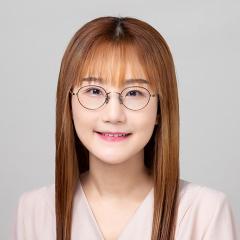
HEEWON KIM

Over 8 years with The Hugh Downs School Areas of Expertise: Organizational Communication, Intercultural Communication, Feminist and Gender Studies, Political Communication, Health Communication Research Methods: Qualitative Methods, Quantitative Methods, Mixed-Method Approaches
By what name do you prefer to be addressed by students in the program? By your advisees?
Heewon
Please share a little about your preferred work style. For example, how often do you usually meet with your advisees pre-comps? Post-comps? What are typical goals or expectations you have for advisees who work with you?
As a scholar-activist, I value scholarly accountability, integrity, and commitment. I view advising/mentoring as a critical form of research and pedagogical praxis that should cultivate mutual learning and social transformation That said, I expect that my advisees also share similar commitment and purposes as a scholar-activist. Once we establish our relationships, I closely communicate with my advisees to coordinate our schedules, action plans, and academic goals. Appointments can be made based on the needs and availability.
What kinds of comprehensive exam formats do you prefer to use (e.g., take-home, in-house, mixed, surprise questions, reading lists ahead of time, questions ahead of time, etc.)?
As our School has a new set of guidelines now, I prefer working with students in advance to determine the optimal format for each advisee. Typically we will create a few reading lists for different areas and arrange meetings with all committee members to weigh in everyone ’ s expectations (e g , key themes and requirements for each question) There will be no “surprise” in the comprehensive examinations. Rather, we will use this milestone as an opportunity to advance and build each student’s research programs.
What are three important qualities for an effective advisor to have?
Care and Support, Leadership (in terms of interdisciplinary and cross-sector teamwork), Knowledge and Expertise
Is there anything you would like to add?
Please do not hesitate to reach out if you have questions.

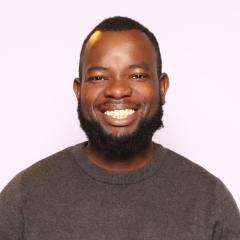
TOMIDE OLORUNTOBI

2nd year with The Hugh Downs School Areas of Expertise: Inter/cultural and intergroup communication, globalization, post/decolonial studies, intersectionality, media and communication, audience/user research Research Methods:
Qualitative, critical (n)ethography, text analysis, auto-methodologies
By what name do you prefer to be addressed by students in the program? By your advisees?
Tomide or Dr. Oloruntobi
Please share a little about your preferred work style. For example, how often do you usually meet with your advisees pre-comps? Post-comps? What are typical goals or expectations you have for advisees who work with you?
I meet weekly once major deadlines have been finalized, biweekly for regular checkin, or as needed. I am at my advisee's disposal to provide support and guidance for comprehensive exams, proposal writing, and dissertation processes. I encourage intentional curiosity, organized and purposeful meetings, and regular communication. I emphasize critical reflexivity and collaborations as they continue to develop their scholarly identities.
What kinds of comprehensive exam formats do you prefer to use (e.g., takehome, in-house, mixed, surprise questions, reading lists ahead of time, questions ahead of time, etc.)?
Take-home, reading lists ahead of time. Compassionate, organization, and responsive
What are three important qualities for an effective advisor to have?

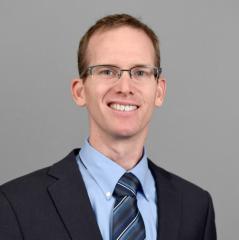
JONATHAN PETTIGREW

10th year with The Hugh Downs School Areas of Expertise: interpersonal communication, health communication Research Methods: qualitative, quantitative, mixed (social science & interpretive projects)
By what name do you prefer to be addressed by students in the program? By your advisees?
Jonathan or Dr. Pettigrew
Please share a little about your preferred work style. For example, how often do you usually meet with your advisees pre-comps? Post-comps? What are typical goals or expectations you have for advisees who work with you?
I meet about monthly with my advisees or as needed. I generally will forward relevant emails and check in by phone, office visits or zoom. As major milestones (e.g., comps, prospectus) approach, I like having regular meetings to touch base. During the dissertation work, I also like having regular meetings, usually every couple of weeks, to debrief what the process and the study.
What kinds of comprehensive exam formats do you prefer to use (e.g., take-home, in-house, mixed, surprise questions, reading lists ahead of time, questions ahead of time, etc.)?
What are three important qualities for an effective advisor to have?
I like take home essays that cover a subfield of communication, theory, methods, and a particular topic. Going through the comprehensive exam and especially the dissertation process should result in an expertise that makes the student a leading thinker and one of the most well-researched people in the Academy about their specific topic. But the exam also demonstrate expertise in the field/subfield, so it can include questions that force the examinee to demonstrate how their work fits into the broader field/subfield and academy. That said, I'm open to negotiating with the committee and students to devise a meaningful examination process. Empathy, organization, and an other-focus



TONY ROBERTO
16+ years with The Hugh Downs School Areas of Expertise: Health Communication, Persuasion, Methods, Interpersonal Communication Research Methods: Quantitative... surveys, experiments, etc.
By what name do you prefer to be addressed by students in the program? By your advisees?
Tony I consider myself at my advisee’s disposal for comprehensive exams and dissertations. Otherwise, we meet as needed (usually because we are working on a research project together – either mine or theirs, because they are on the job market, etc.).
Please share a little about your preferred work style. For example, how often do you usually meet with your advisees pre-comps? Post-comps? What are typical goals or expectations you have for advisees who work with you?
What kinds of comprehensive exam formats do you prefer to use (e.g., take-home, inhouse, mixed, surprise questions, reading lists ahead of time, questions ahead of time, etc.)?
I am open to whatever students prefer when it comes to comprehensive exams. However, I prefer to offer take-home exams, to provide readings ahead of time, and to provide questions ahead of time. For example, I typically have a meeting with my advisees where we co-create the questions I will be asking. I also encourage them to meet with other committee members to do the same. For me, a key goal of comprehensive exams is to help prepare a student for their dissertation. Thus, student’s answers to the questions I ask will typically become a part of the dissertation at some point (i.e., part of the literature review, method section, discussion section, etc.).

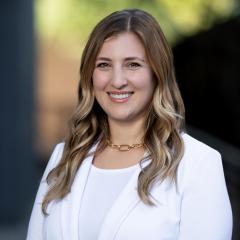
LIESEL SHARABI

4 years with The Hugh Downs School Areas of Expertise: interpersonal relationships, communication technologies Research Methods: quantitative and qualitative
By what name do you prefer to be addressed by students in the program? By your advisees?
Dr. Sharabi I meet with my advisees for one hour each week (for lab) and for 30 minutes each month (for individual check-ins), as well as on an as-needed basis. My goal for my advisees is to help them build their CVs and develop their own identities as scholars. I expect my advisees to participate in the Relationships and Technology Lab, which is where most of our collaborative work happens.
Please share a little about your preferred work style. For example, how often do you usually meet with your advisees pre-comps? Post-comps? What are typical goals or expectations you have for advisees who work with you?
What kinds of comprehensive exam formats do you prefer to use (e.g., take-home, inhouse, mixed, surprise questions, reading lists ahead of time, questions ahead of time, etc.)?
I prefer a traditional comps format and work with my advisees and their committees to determine what that will look like.
What are three important qualities for an effective advisor to have? knowledgeable, direct, and supportive



SARAH TRACY
With The Hugh Downs School since Fall 2000 Areas of Expertise: Organizational Communication; Positive Communication; Leadership; Compassion; Emotion & Communication Research Methods: Qualitative (some former students have included performance, rhetoric, and quantitative with help from other mentors)
By what name do you prefer to be addressed by students in the program? By your advisees?
Either Sarah or Dr Tracy (unless you are talking to a group of external stakeholders or students Then Dr Tracy)
Please share a little about your preferred work style. For example, how often do you usually meet with your advisees pre-comps? Post-comps? What are typical goals or expectations you have for advisees who work with you?
Typically 2-3 times a semester pre-comps; 1 time a month post-comps. I expect advisees to be curious and open to feedback, organized and focused for meetings, to be in communication regularly about progress and challenges.
What kinds of comprehensive exam formats do you prefer to use (e.g., take-home, in-house, mixed, surprise questions, reading lists ahead of time, questions ahead of time, etc.)?
I view comprehensive exams as a time to synthesize one ' s knowledge over a relatively short period of time (e.g., a week) rather than strung out over months. I ask for reading lists that cover the main areas of study; recommendations on general areas for questions; and then ask students to devise their "ideal" questions based on these areas. These are a starting point for the final questions developed by the committee. Typically students have a pretty good idea what they should be studying for -- and it includes a mix of questions that show competency in core areas (showing they are ready for dissertating) and questions that will launch them into their future scholarly plans.
What are three important qualities for an effective advisor to have?
1) Listening. 2) Providing clear expectations. 3) Balancing student's self-discovery with some compassionate structure along the way.
Is there anything you would like to add?
Advising graduate students has been one of the most difficult but meaningful aspects of my scholarly life There is huge satisfaction in seeing new scholarly directions being born, and being able to learn alongside students. However, the ride can be emotional because, let's face it, doing the work required to earn a doctoral degree can be stressful and overwhelming at times--and advising (or at least doing it well) takes significant time and patience. However, some of the people I care for and respect most in the world are my former advisees--and
later.

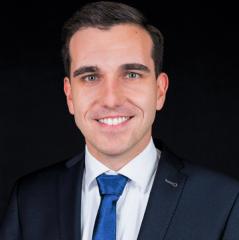
JORIS VAN OUYTSEL

Joined The Hugh Downs School in February 2021 Areas of Expertise:
Interpersonal communication and health communication
Research Methods:
I am comfortable with both quantitative methods (survey research) as well as social-scientific qualitative methods (interviews and focus groupsthematic analysis, grounded theory)
By what name do you prefer to be addressed by students in the program? By your advisees?
Students in the program can address me with Dr. Van Ouytsel. Advisees can call me Joris.
Please share a little about your preferred work style. For example, how often do you usually meet with your advisees pre-comps? Post-comps? What are typical goals or expectations you have for advisees who work with you?
I work closely with students to create a schedule that suits their needs. For some of my advisees, we meet up twice a month, while for others, it might be a few times during the semester. It all depends on the projects they're working on and when they need my guidance.
What kinds of comprehensive exam formats do you prefer to use (e.g., take-home, inhouse, mixed, surprise questions, reading lists ahead of time, questions ahead of time, etc.)?
The comprehensive format is discussed together with the doctoral committee and the student.
What are three important qualities for an effective advisor to have? Honest feedback, empathy, being responsive

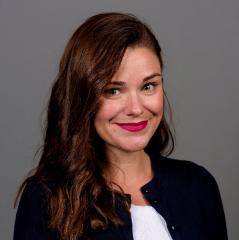
ALAINA ZANIN

With The Hugh Downs School since Fall 2017 Areas of Expertise: Organizational Communication, Health Communication, Sport Communication Research Methods: Qualitative Methods (both Interpretive and Critical, however I am not comfortable o trained in Performance or Rhetorical methods)
By what name do you prefer to be addressed by students in the program? By your advisees?
Dr. Zanin or Dr. Z, Advisees: Alaina
Please share a little about your preferred work style. For example, how often do you usually meet with your advisees pre-comps? Post-comps? What are typical goals or expectations you have for advisees who work with you?
Typically during the first two years of the program I meet with advisees monthly. In preparation for comprehensive exams we have a standing meeting every two weeks, (which we can cancel if not needed). During the prospectus writing/dissertation process we have a weekly meeting (which we can cancel if not needed), this often helps to move the project forward by troubleshooting any issues, providing feedback, and setting small incremental goals. We also discuss job market and any other collaborative projects during these meetings Typically, my goal would be to collaborate on two projects (one where I lead, and one where the student leads) prior to the start of the comprehensive exam process. This goal allows us to understand each other's work styles and work on collaborative research with the goal of publication and bolserting the student's CV.
What kinds of comprehensive exam formats do you prefer to use (e.g., take-home, in-house, mixed, surprise questions, reading lists ahead of time, questions ahead of time, etc.)?
Designing comprehensive exams is unique to each student's needs/goals. Usually, I recommend a mixture of take home and in-house exams, where the students know generally what the questions will be, reading lists are approved and developed prior to the exams. I have also had students have full take home exams that extend the course of the semester because that was the right fit for them.
What are three important qualities for an effective advisor to have?
Adaptable, Responsive, Compassionate (and Patient)

